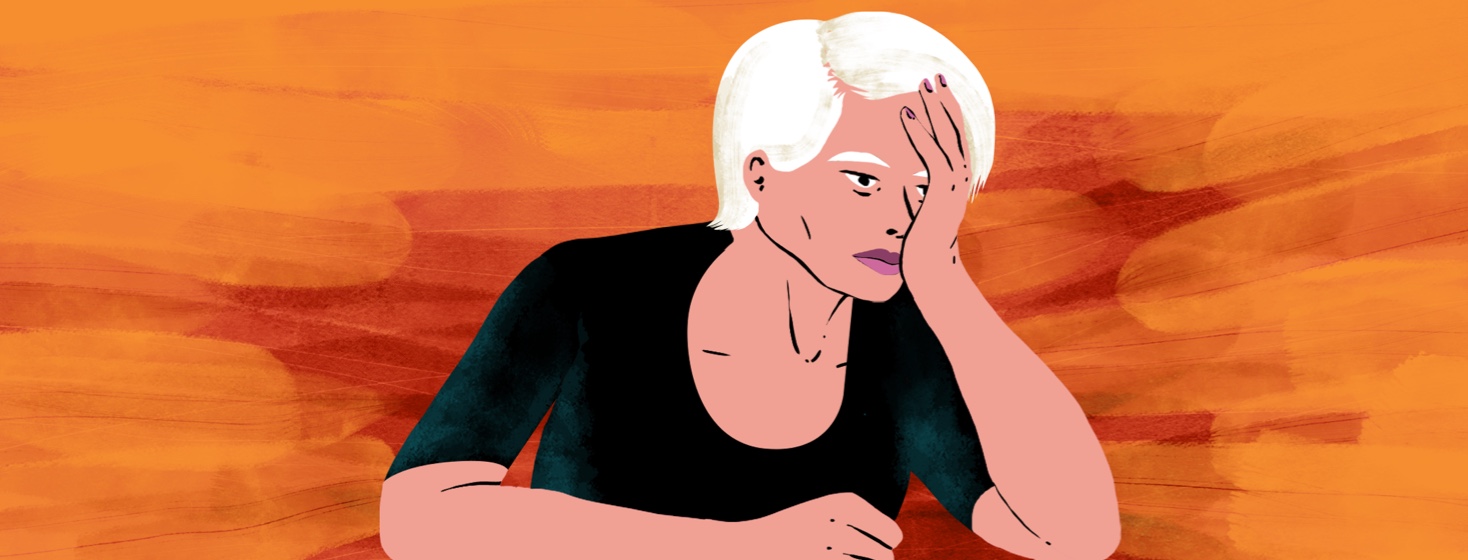Fighting Back Against Ageism in the MS Community
Over the last few years, I’ve been outspoken about the lack of inclusion for people aged 60 and over within the MS community. Unfortunately, we’re a group that sometimes lacks the attention we deserve from medical and research communities, as well as MS organizations and drug companies who target a younger audience. It’s become evident to me that “people of a certain age” are less likely to be featured in marketing campaigns and initiatives.
Am I wrong to think the multiple sclerosis community comprises people of ALL ages? (A rhetorical question.)
Feeling excluded
I’d like to know who decides what age someone becomes “older” and why “older” people may be excluded from clinical trials. I realize there are parameters set, some having to do with comorbidities or a higher-risk situation. Yet when I fill out applications to be part of various initiatives, I hesitate before checking the box for my age group for fear of being passed over. I’m not alone in this complaint.
Who drew an invisible line in the sand that patients over 60 cross and suddenly become more invisible? I’ve heard stories within our community that after a certain age if a patient no longer benefits from their current disease-modifying therapy, they’re sometimes advised not to begin a new one.
Do we no longer matter? Do we no longer have value?
Recalling when my MS symptoms started
My MS symptoms started when I was 21 after a serious car accident. I was too busy and happy in my work and home life to pay attention to my symptoms. Being so young I felt invincible. Six years later I could no longer ignore the numbness, weakness, and unrelenting fatigue that was affecting me. At 27 I was quickly diagnosed with MS, a typical age for its onset. It was 1986 and there was no internet or FDA-approved MS medications.
Less was known about the risks of clinical trials or how the MS community benefits from them. They were often viewed with a certain amount of trepidation.
Thinking back, I can understand why my father asked me to promise not to enroll in clinical trials. Today, as a parent, I can imagine how helpless he must have felt with his daughter’s diagnosis. With little information on the disease and not much promise for my future, both of my parents knew life with MS seemed bleak.
Becoming a fighter and an advocate
At that moment I became a fighter and an advocate. I felt sorrier for my parents than I was for myself, and I was determined to never be a shrinking violet when it came to self-advocacy.
It took seven more years until the first disease-modifying therapy was FDA-approved. The internet was in its infancy with social media still in the distance. The ideas of “patient-centric “or “patient-centered” wouldn’t be popularized for a few more years. The medical community hadn’t fully embraced complementary therapies such as energy medicine, mind-body techniques, or manipulative and body-based therapies. The advice was usually to rest, not work or exercise, for fear that stress and increased body temperatures might cause exacerbations.
My journey had just begun, but the path seemed blocked by too many obstacles. I was young with little to no information to empower me. I never want anyone in the MS community to travel a similar path. Never.
I'm still me
After 37 years of living with this disease, I have wrinkles and gray hair, my gait is slower, and when I’m tired my legs can collapse and my cognition is affected. BUT (and this is a big but) I’m still me! I’m the same girl I was at 27 when this big bump in the road unraveled.
Yes, I’m wiser, more patient, and more mindful of the gift of another day. Yes, the bumps can be brutal, but also they can be smooth, sad, joyful, and tiresome. One day is different than the next, and that’s the definition of MS.
As Jon Kabat-Zinn says, “There’s more right with you than wrong.” I pray I can say that for a very long time.
Ageism is always wrong
Here’s the rub: I want to remind people that ageism is always wrong! Everyone in our community matters; there’s no age limit. We’re a microcosm of the world, except we live with a few cranky lesions that forever changed our lives. The reality of MS is it’s not always pretty, but isn’t that true for those without MS?
We all matter. We all add value to the world. And we should never, EVER, be excluded because of our age. We bring expertise, experience, and intellect to the table. We are productive within our abilities, but we should never be counted out. I think Cher said it best:
“Don’t you think you’re too old to sing rock n’ roll? I said: You’d better check with Mick Jagger.” -Cher

Join the conversation